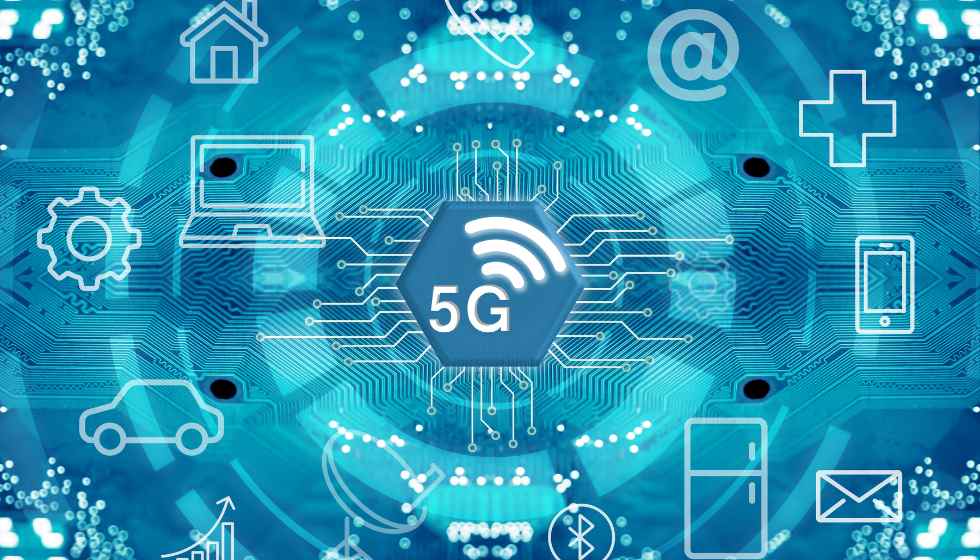The technological potential that emerges from 5G private networks is undoubtedly an opportunity for organizations committed to an exponential digital transformation. This technological leap will not only allow companies to improve their infrastructures to protect themselves from possible attacks but also promises greater bandwidth in their networks, allowing a greater volume of data to be processed more efficiently. 24 % of companies are already applying private 5G, according to data from Economist Impact and NTT.
The main reasons for the adoption of those surveyed are the reinforcement of network security, improved data privacy and increased connection speed.
5G private networks: which companies can benefit
For now, only 5G private networks can only implement 5G private networks within the business fabric. Advanced connectivity is configured by wireless networks designed for the personal use of a company, and these are some of the sectors that can benefit from its advantages :
Companies in the industrial sector: One of the sectors with the most possibilities in this area. The deployment of this technology will allow private interconnectivity in real time between systems and machinery, which will mean integrating all the elements of Industry 4.0.
Companies in the educational sector: The possibilities of the academic world are endless. The deployment of these networks, together with emerging technologies such as IoT devices or Big Data platforms, increasingly facilitates new learning models based on virtual or augmented reality.
Companies in the health sector: 5G technology is already being applied in some areas of medicine to facilitate assistance in remote surgeries. Implementing private networks will also reduce the centralization of services and greater security of patient data.
Other types of companies: Areas such as tourism, entertainment or security will grow in the coming years parallel to the expansion of private 5G. The integration of video games in the cloud, immersive tourism or the optimization of city surveillance services is some of the solutions that leading organizations are already applying.
Main advantages of 5G private networks
One of the most notable advances in expanding 5G wireless networks in the private sphere is the exponential increase in connection speeds. However, it is not the only advantage of its use. Improved data privacy, greater security against possible cyberattacks, process automation or lower energy consumption will also positively impact the competitiveness of companies that implement this technology.
Greater security
In a scenario of technological acceleration, new tools grow simultaneously with the risks to which companies are exposed to their use. During 2022, cyberattacks increased by 28% compared to the previous year, as recorded by Check Point. It is estimated that this figure will continue to grow in 2023. One of the advantages of 5G private networks is the increase in cybersecurity against possible attacks. Simultaneous control of all devices that have access to the network allows you to identify risks in almost real-time.
High speed
The increase in connection speed and the low latency of the fifth generation of mobile networks in the private area are two of the advantages best known by users. While the average band for typical Wi-Fi is around 2.4 GHz, private 5G networks can reach about 3.6 GHz. 5G networks are up to 20 times faster than 4G networks. This type of network’s display and download speed are quicker, and data retransmission is more stable.
Lower energy consumption
5G coverage will positively impact energy consumption in the long term since it allows greater efficiency in the use of the network and the use of connected devices. This type of technology, in addition to extending the useful life of all the devices connected to the network and allowing more excellent durability of the batteries, could facilitate energy savings of 90%, according to a study prepared by the 5G PPP.
Process automation
Private 5G also stands as a critical piece in automating processes within the industrial sector. Networks allow the ability to connect various devices and guarantee the necessary bandwidth to automate production processes. According to recent research by ABI Research, it is estimated that, by 2030, this sector will have more than 49 million 5G connections in its factories, generating some 2.4 billion euros.
Promotion of other technologies
The advancement of 5G private networks boosts emerging technologies such as Artificial Intelligence, IoT or Edge Computing. Elements capable of generating massive amounts of data that, under the umbrella of wireless networks, allow your data to be processed close to the same place it was developed—a vital aspect to reduce latency.
The implementation of 5G private networks is progressing slowly, but each improvement represents a significant digitization advance. It is estimated that 51% of companies will implement this network within 6 to 24 months, as revealed by Economist Impact CIO.
